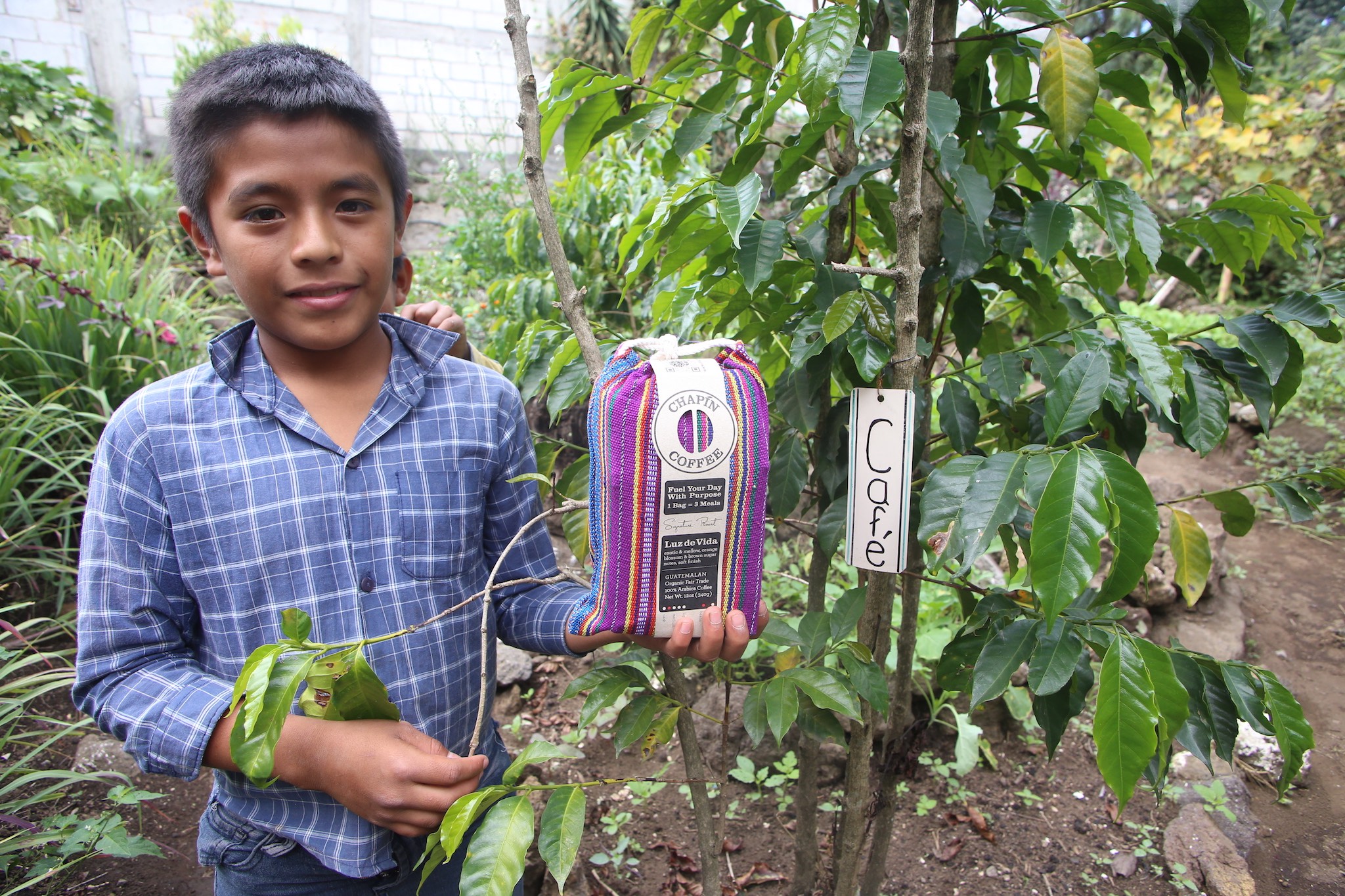Ask Jennifer Alexander Monzón the story behind Chapín Coffee, and she’ll talk about her husband’s childhood.
“His whole family is from Guatemala,” she says. “He’d spend several months every year living on the coffee farm his grandfather once managed.”
In the process, he developed a deep passion for coffee. But he also noticed the effects of chronic malnutrition on the lives of local kids.
“In the rural areas of Guatemala where coffee is being grown, three out of four children aren’t getting the nutrients they need,” she says. “They suffer from physical stunting, cognitive impairment, and are more susceptible to diseases later in life.”
After attending business school, he saw a solution. With specialty coffee becoming increasingly popular in the United States, he decided to create a company that would help children in Guatemala get the nutrition they need.
We spoke with the WeWork member about their company and its many initiatives to help kids and their families.
 What are you trying to accomplish with Chapín Coffee?
What are you trying to accomplish with Chapín Coffee?
On our second date, a little over seven years ago, my husband told me his dream of starting a coffee company that would feed children in Guatemala. I got chills, and told him, “You have to do that!” and that’s where everything started.
Through your partnership with the nonprofit Pueblo a Pueblo, Chapín Coffee has helped serve 22,301 meals to children in Guatemala.
Yes, the malnutrition crisis is a result of many years of strife and unrest in the country. They teach children how to grow an organic garden at the schools where they deliver meals. It’s a way to help empower them, and through them, the community. Pueblo a Pueblo also brings in noodles, or beans — other ingredients to round out the meal. It’s sustainable change for the future.
What are some of your other initiatives?
We also work with a group of women artisans in Guatemala who create the colorful Mayan fabric bags that our signature roast is packaged in. The bag is designed specifically for our coffee, and we are able to pay them directly for their work. Employing them with a paycheck is one of the best ways to indirectly support the children they care for.
We source as much fair trade and organic coffee as we can. We work with two cooperatives in Guatemala, both of which are Fair Trade and Organic certified. The larger of the two is also Café Feminino certified, which is a certification that means they have a certain number of female owned and operated farms.
We’re also very excited about a new partnership we launched last fall with a nonprofit in Chicago called ChildServ, which works with at-risk children and families in the Chicago area to provide education and parenting support. We partnered with them to create a special collection of coffees called the “A Better Life Collection.” For every bag of these three types of coffee sold from the “A Better Life Collection,” not only is a meal donated to a Guatemalan child through Pueblo a Pueblo but also 10 percent of the proceeds go back to ChildServ to help support children and families in Chicago.
What is your favorite part of being a WeWork member in Grant Park?
I took a tour on a whim and I didn’t think we could afford it at the time. The energy of the place — both the members and the people who worked for WeWork — was just amazing. I felt like I had to be a part of it. It’s a beautiful space. Anytime you can infuse your work and life with beauty, it helps. And I love the community aspect of being able to connect with other entrepreneurs and people doing something that matters to them.




